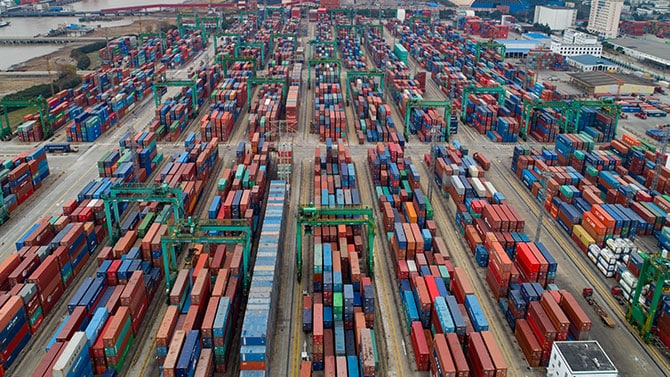
The Brexit agenda of 2020
01/23/20
Transition period after 31 January
Brexit will become reality on 31 January 2020 - this much is now clear. From this point in time, the transition period begins, during which the United Kingdom (UK) and the European Union (EU) will negotiate a bilateral trade agreement. For companies, in fact not much will change in 2020 as the UK will continue to be treated as an EU member state during the transition period. We will report next week on the preparations that companies can already make this year. But for now, which dates are important for political progress in 2020?

Business as usual in 2020
During the transition period, the UK will retain the benefits of EU membership and will remain a part of the EU's internal market and customs union. Simultaneously it will start trade negotiations with the EU. On the other hand, the UK will lose its representation in the European institutions and will not participate in EU decision-making. This post-Brexit transition period ends at the end of 2020. The UK has stated that it will not request an extension of the transition period.
Given the limited time available, we expect a very basic trade agreement by the end of 2020. It is likely that this trade agreement will have to be supplemented and extended with further agreements post-2020, in particular in the field of services. The following are some of the data that will be important in 2020.
1 March 2020: negotiating mandate agreed
The EU wants its negotiating mandate to be approved by March 1, potentially at the meeting of EU-27 European Ministers on 25 February. Once this mandate is in place the European Commission has the authorisation to open trade talks with the UK.
Both sides agree that a priority in the talks will be to hammer out a free trade agreement that will be the core of their new future economic relationship. The EU and the UK have said that the objective should be quota-free and tariff-free trade in goods but the EU requests significant alignment with EU standards, in order to ensure a level playing field and avoid unfair competition. Lobbying for the interests of specific sectors will likely be most effective before this date. Recent years have shown that the final outcome of the negotiations often closely mirrors the initial negotiating mandate.
June 2020: Stocktaking
According to the EU and UK political declaration, a summit should be held in June 2020 so that the EU27 and the UK can assess the progress of trade negotiations. June is also the last month in which the UK can request an extension of the transition period beyond the end of 2020. The current Conservative government has made it very clear that it will not ask for such an extension.
26 November 2020: Trade deal presented to the European Parliament?
A trade agreement must be negotiated, checked, translated and presented to the European Parliament (EP) at the penultimate plenary session of 2020 that takes place during the week of 26 November, if the agreement is to be ratified before the end of the year. The last plenary session in mid-December would be too late to sign an agreement with the UK. Furthermore, each member state must also ratify a trade agreement agreed by the EU. In practice, this means that there will be a very short period for the EU and the UK to negotiate their future trade relations.
31 December 2020: No trade deal post Brexit?
If there is no trade agreement in place by this date and no extension of the transition period, the UK will fall back on the basic conditions of the World Trade Organization. That means that there will be tariffs for goods customs border controls and procedures to comply with them. The result would in fact be the same as a no-deal Brexit and companies would have to prepare for how to deal with such a potential scenario in 2021.
31 December 2022: End of an extended extension?
This is the latest date until which the transition period can be extended. However, during this period, the UK would need to make further financial contributions to the EU budget and revert to its earlier declaration not to extend the transitional period under any circumstances. This scenario therefore seems very unlikely.
Read more next week about the preparations that companies can already make in 2020. Would you like to benefit from our experience? Our team of brexit specialists is ready to advise you and your company.
Contact us
















